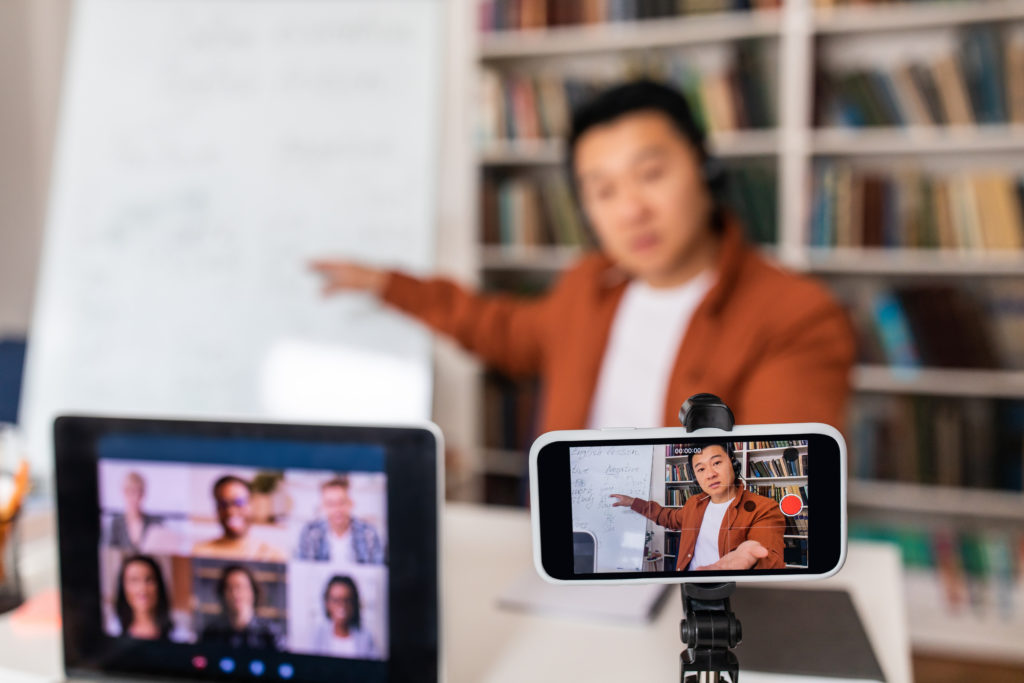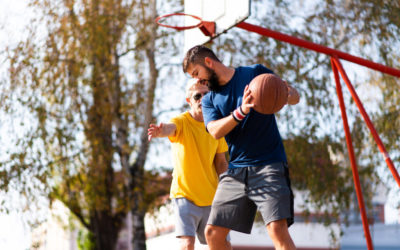Quick Hits
Daily brief research updates from the cognitive sciences

Not so long ago all learning went online – out of necessity.
There has been plenty pf research into differences in online learning and in-person learning but this study by Gellisch et al. at Ruhr-University Bochum looked at different physiological stress responses between online learning and in-person learning.
This study was interesting because it studied the same 82 students in an in-person and online learning scenario. They were attending a blended learning anatomy course that had different groups alternating between online lessons and in-person lessons (the same lessons).
The participants were monitored with heart rate sensors and also cortisol, the stress hormones, was measured by taking saliva samples at the start of the session after 60 minutes and at the end of the two-hour lesson.
What did they find?
They found that the in-person lesson stimulated higher cortisol levels, higher heart rate and lower heart rate variability. This is consistent with a stress response. So, is in-person learning more stressful? Yes, but and this is a big but, this also shows higher stimulation and higher stimulation is generally associated with better memory function and learning,
So, in short online learning is less stressful, more comfortable, but likely less impactful. This not to mention other positive benefits of in-person learning such as bonding with classmates and additional learning opportunities through casual and focused conversations around the course.
What’s more those in the in-person groups reported higher enjoyment of the very same class. So, let’s not write off in-person courses, yet!

Andy Habermacher
Andy is author of leading brains Review, Neuroleadership, and multiple other books. He has been intensively involved in writing and research into neuroleadership and is considered one of Europe’s leading experts. He is also a well-known public speaker, speaking on the brain and human behaviour.
Andy is also a masters athlete (middle distance running) and competes regularly at international competitions (and holds a few national records in his age category).
Reference
Sizhen Su, Le Shi, Yongbo Zheng, Yankun Sun, Xiaolin Huang, Anyi Zhang, Jianyu Que, Xinyu Sun, Jie Shi, Yanping Bao, Jiahui Deng, Lin Lu.
Leisure Activities and the Risk of Dementia: A Systematic Review and Meta-Analysis.
Neurology, 2022; 10.1212/WNL.0000000000200929
DOI: 10.1212/WNL.0000000000200929
More Quick Hits
Yes, Fake Smiling Does Improve Your Mood
Can just smiling, even if fake, improve your mood? This has been proven, debunked, re-proven and now re-re-proven…
How Your Brain Decides to Help Others in Danger
In times of crises and danger we may hide and flee as our natural instincts would guide us, or do something else: put ourselves at danger and help others.
Two Types of Willpower
There are two types of will power – and one is much more effective…
Our Brains Seem to Use Quantum Computations
It has been proposed that our brain uses quantum processes but this is hard to prove – until now that is…
Insults Trigger the Equivalent of a Slap to the Face in the Brain
What do insults do to our brain wave patterns, do they degrade over time and how do they compare to compliments?
Even a Short Bout of Exercise Can Boost Brain Growth
Exercise is good for you – we all know that. But can just a single bout of exercise do you and your brain any good?






